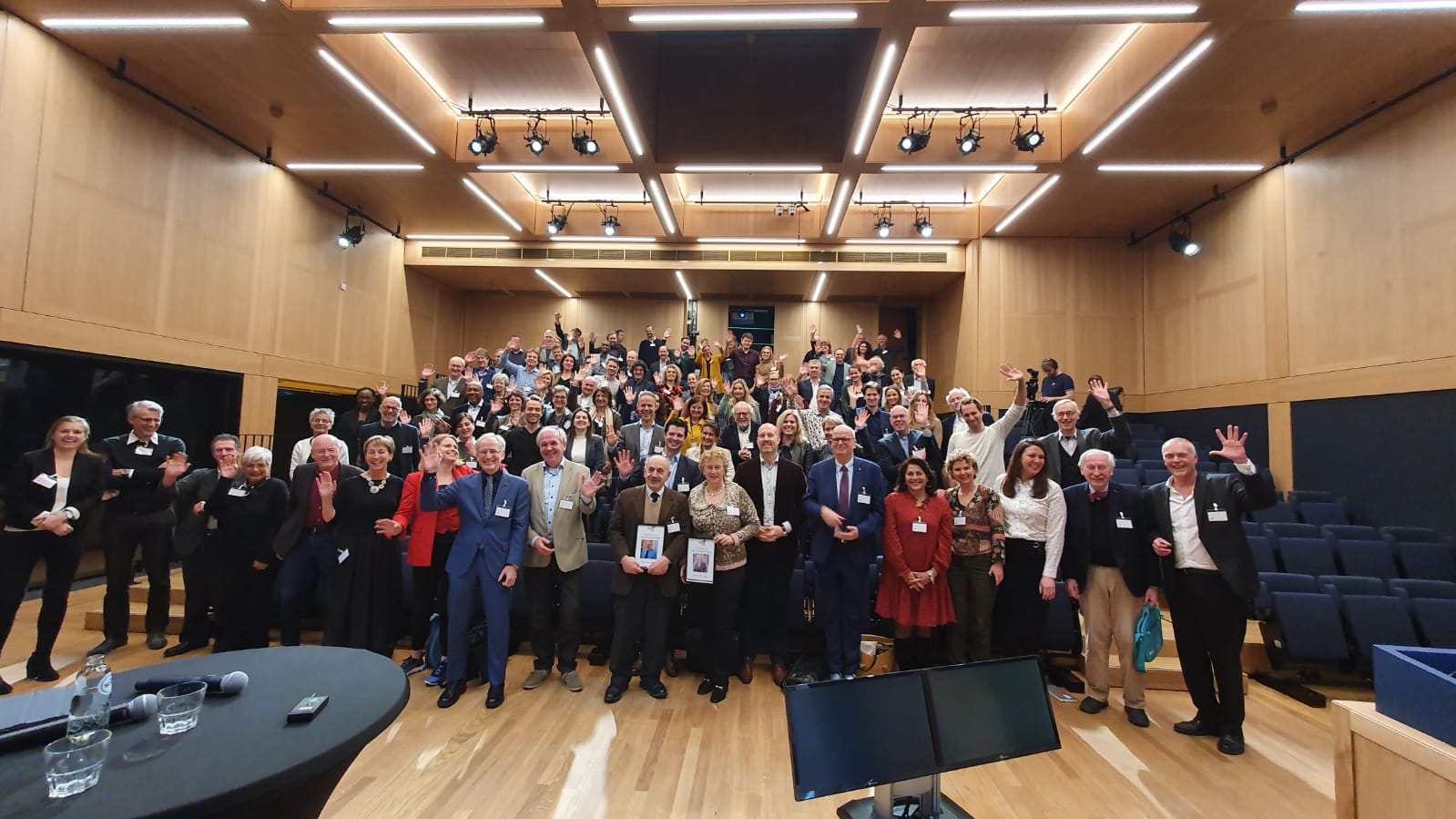SUMMARY OF DAY 1
“Evidence, arrogance, ignorance, eminence”. How do you find the optimal balance for better treatments and quality of life? That is the central theme of the annual Inspire2Live congress, which was kicked off on Wednesday January 29 in the Trippenhuis in Amsterdam.
Leonie Sazias
The congress was opened by Peter Kapitein. He welcomed the guests. Leonie Sazias, member of the Dutch parliament, told her personal story. Whole Genome Sequencing was not for her, but would not have made her chemo dose so heavy, with far fewer side effects. Her message: Get the solution and get the cure!
The Inspire2Live Patient Advocate Hero of Cancer Awards
The Inspire2Live Patient Advocate Hero of Cancer Awards this year were given to Bob Weinberg (Whitehead Institute, Boston) and Laura van ‘t veer were distinguished (USCF) for their outstanding achievements in the fight against cancers. In 2018 and 2019 the awards were received by Bob Pinedo Fritz Schröder, Pauline Dekker, Wanda de Kanter and Stephen Friend. Weinberg: “The progress of science with cancer is slower than with many other diseases, because cancer is so smart. It always finds new escapes from our treatments. Laura van ‘t Veer: since the 1980s, patients have always inspired me to find the best possible treatment and to actually bring it to the patient.
IQVIA
Martijn Nap from IQVIA Nederland told us about the results of a project concerning data on the best treatment centers in the Netherlands to be expected in the coming March. “Many existing online lists or recommendations of hospitals for specific cancers are not medically ranked or rated. This does not help patients in finding the right hospital ”. Inspire2Live will publish final results when available. Expected in March.
Ronald Plasterk: Vaccines against Cancer
Former Dutch parliament and researcher Ronald Plasterk explained “Vaccines against Cancer”. The idea is fusing Genome Seqeuncing with Immunology against Cancer. Increase activity of the Immune System. Combined with teaching the Immune System to find and destroy cells with very specific genetic changes (called “frame changes”) in an active tumor. Frame changes make the cancer cell much more sensitive to immune attacks. Plasterk and his team are now working on getting this to trial for several cancers. Plasterk ends with a thanks to Inspire2Live, for more or less arm twisting the required scientists to gather around the same table to develop this.
Patrick Connor pharmaceutical company AstraZeneca
Next guest was Patrick Connor (pharmaceutical company AstraZeneca). He told us that cancer incidence and survival are growing. Great progress with some cancers, much less with others for example lung cancer. He proposes a ‘stack’ of measures to improve survival. He mentions that earlier diagnosis (of screening), are more usefull of the optimal medicine for specific subtypes, improvement of the quality of care, the ideal to strive for double 5-year survival. Astra Zeneca also strives to collaborate with many local non-profit organizations to improve actual patient care.
Peter Kapitein then extracts an underlying pattern from all stories about change and strategy. “Wouldn’t it be great if companies like Roche or AstraZeneca were the largest healthcare companies in 5 or 10 years without producing a single drug?!?
Panel discussion: René Medema (NKI / AvL) and Jelle Barentsz (Radboud UMC) and Maureen Visscher (I2L), answered the question: how do you change the behavior of doctors to empathize with the patient?
Ask the doctor to stand in front of a mirror and answer the question “Why did you become a doctor?” And then answer it to yourself and not to me. The public and Rene Medema (NKI / AVL) answer the question “How do you change the behavior of organizations to put the patient first?” Their conclusion: we learn and the essence is that cooperation produces better results for everyone than impediment or competition. Maureen Visscher: as a patient you are in a vulnerable and subordinate position, you only get the best advice and the best treatment by being lucky (with a good doctor) or by being strong (with a great network to get the best hospital) find) . This should / should not be the case!!
Finally, the panel discusses Els Borst’s legacy: “If the scientist says – this treatment works – And if the doctor says – I can administer this treatment – And if the patient says – I want this treatment – who am I as a politician to deny this?

